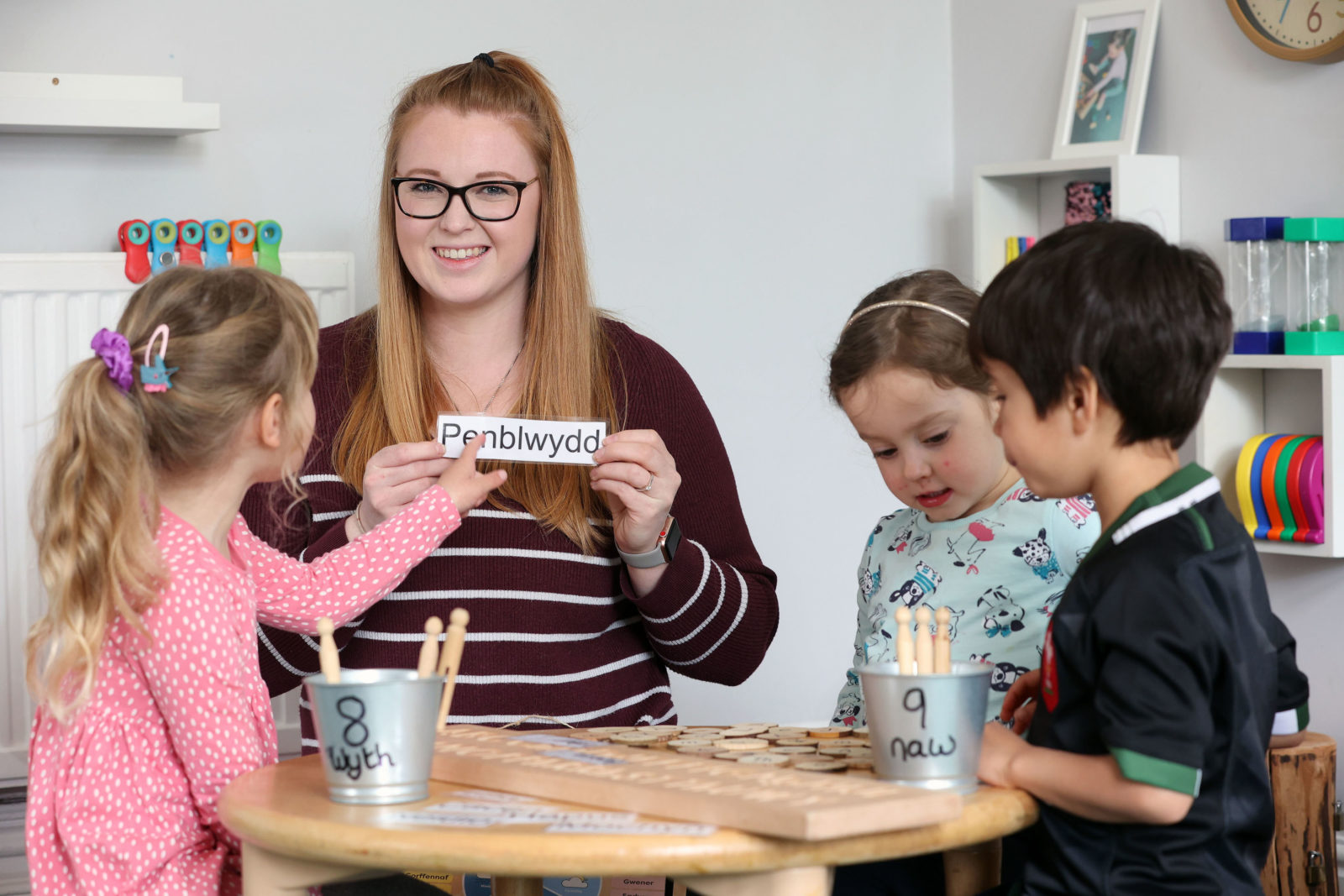An award-winning day nursery in Cardiff is passionate about providing opportunities and support for staff, children and parents to use the Welsh language.
Whitchurch-based Si-Lwli, which was named Nursery of the Year for Wales in 2018, has 21 staff who care for 105 children between the ages of six months and four years. Such is the demand for places in the nursery that parents have to join a growing waiting list.
Apart from promoting the Welsh language, the nursery is equally passionate about developing skilled staff. At least half of the workforce has achieved apprenticeships ranging from levels 2 to 5.
One staff member is currently working towards a Higher Apprenticeship Level 4 in Professional Practice in Children’s Care, Play, Learning and Development while three are seeking the Foundation Apprenticeship Level 2 Core qualification.
The City&Guilds apprenticeships are being delivered bilingually by training provider Educ8 Training, based in Caerphilly, whose assessor Rhian Weeks praised the nursery’s commitment to apprenticeships and the Welsh language.
“Si-Lwli is a very good employer who give their staff the opportunity to learn using the language that makes them feel most comfortable,” said Rhian. “I think it’s very important that apprentices are given the opportunity to learn through the medium of Welsh because it means they don’t have to change their terminology and their best practice can be captured.”
Si-Lwli is being highlighted by Coleg Cymraeg Cenedlaethol and the National Training Federation of Wales (NTfW) as a champion of bilingualism in the workplace.
Coleg Cymraeg Cenedlaethol leads the development of Welsh medium and bilingual education and training in the post-compulsory sector in Wales whilst the NTfW represents work-based learning providers across Wales.
Having both achieved bilingual Higher Apprenticeships, managers Sophie Lewis and Kimberley Hellyar are well placed to advise fellow staff about work-based learning opportunities.
“The willingness of staff to do an apprenticeship shows us their commitment and dedication to working with children as a career,” said Sophie. “They learn a lot in the job but an apprenticeship is a massive help to their in-depth knowledge and confidence.
“It is so easy for Kimberley and me to encourage others to do an apprenticeship because we have first hand experience. Giving them the opportunity to learn bilingually is brilliant.”
Around a quarter of the nursery’s children come from English speaking homes and Sophie revealed that Si-Lwli prepares resources for parents to help them speak Welsh.
“Some parents find Welsh a difficult language to learn, but we try to help them by supporting them in a practical way,” she added. “We always encourage children and parents to give it a go and it doesn’t matter if they make mistakes.
“I think it’s good to get children speaking Welsh from the start of their education. Being able to speak Welsh will give children access to the best opportunities available to them.
“The ability to speak Welsh is a desirable trait when applying for many jobs. I certainly wouldn’t be where I am today without the Welsh language.”
Dr Dafydd Trystan, from the Coleg Cymraeg Cenedlaethol, said: “Highlighting successful employers who are active in the apprenticeship sector is a vital tool in showing businesses and individuals that it is both possible and advantageous to support bilingual apprentices.
“With the Welsh Government’s target to reach one million Welsh speakers by 2050, it has never been more important for employers and their employees to develop their bilingual skills to increase their business and employability prospects respectively.”
Ryan Evans, from the NTfW, said: “Many workplaces are becoming more bilingual, which can be very beneficial to employers, especially when providing services to Welsh speaking customers.
“Completing an apprenticeship bilingually or in Welsh can increase an individual’s confidence to work in both languages and their employability, whilst also being a great asset to their employer.
“Si-Lwli is an excellent role model for apprenticeships, highlighting the benefits of learning and working bilingually in the workplace.”









Leave a Reply
View Comments